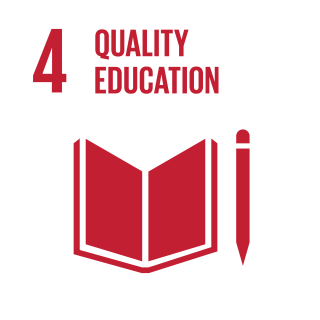Focus On: Sustainable development: what’s in it for education?

“Sustainable development is the pathway to the future we want for all. It offers a framework to generate economic growth, achieve social justice, exercise environmental stewardship and strengthen governance.” – Ban Ki-moon
In 2015 the United Nations (UN) launched a global call-to-action towards sustainable development, setting the Sustainable Development Goals to drive change in the world by 2030. Adopted by all 193 UN member states, with the European Union being the frontrunner, the Goals – also known as Global Goals or simply SDGs – are 17 interlinked tasks which together provide a holistic vision of sustainable development in our society, economy and environment. Bounded by the motto of "leaving none behind", this ambitious to-do-list stretches from eradicating extreme poverty (Goal no. 1), to establishing gender equality (Goal no. 5), passing from providing clean water and energy (Goal nos. 6 and 7), ending up in targeting climate change (Goal no. 13) and creating inclusive societies and institutions (Goal no. 16). So where does education fit in?
The connection between the Sustainable Development Goals and education is made with Goal no. 4 on the list: "Quality Education". But what does quality education mean in this global context? While we may wish everyone to have access to high quality education, surely educational challenges vary dramatically between under-developed and developed countries? So defining a common goal runs the risk that economically advanced countries consider that they have already achieved "quality education" simply because they are economically advanced.
Setting a relevant SDG for education in all countries has been no mean achievement. The 2015 goal of quality education is a major advance away from the Millennium Goals paradigm set in 2000 whereby richer countries were asked to give aid to help the poorer ones to develop. As today the majority of the poorest people on the planet live in middle-income countries, and many rich countries also have high levels of poverty, a different objective has been chosen. It is to address inequality in education both between countries and within them. And it is relevant everywhere.
Anchored in the idea that education and training are a key aspect of human development at all life stages, Goal 4 is broken down into seven sub-targets ensuring inclusive and equitable quality education at all education levels (education, primary, secondary, higher, vocational, technical), lifelong learning opportunities and skills, eliminating any type of discrimination in education and, last but not least, providing the education for sustainable development itself.
Currently, European states rank among the best performers, with Goal no. 4 being seemingly one of the most successfully achieved goals: 16 European states score above 90 out of 100 (on a scale that consider "0" the worst and "100" the goal achievement). According to the European Union’s recently released Reflection paper: Towards a Sustainable Europe by 2030, the European attainment of quality education is overall positive: participation rates in early childhood education have steadily increased to 95 %, the rate of early school leavers has dropped from 17 % in 2002 to 10.6 % in 2017, and the employment rate of recent graduates has risen from 76.9 % in 2015 to 80.2 % in 2017.
However, this positive picture should be counterbalanced by the recognition that progress is still needed in a number of areas – in particular in addressing underperformance in maths, science and reading, as well as developing digital skills. Tackling social inequalities also remains a major challenge. Few societies have yet found a way to provide equal opportunities to high quality education for all, and socio economic status remains a big predictor of educational success. Most European countries also have work to do to ensure high quality educational provision for students with disabilities or for those coming from migrant backgrounds. Indeed, in primary and secondary education, students with a migrant background are still lagging behind their peers, whereas in higher education only a handful of European countries have introduced policy measures in response to recent increases in numbers of refugee applicants.
In addition, no specific attention seems to be paid to education for sustainable development, explicitly identified as one of the seven sub-targets of Goal no. 4. According to Eurydice’s report on citizenship education, in European primary and secondary schools, education for sustainable development is considered a specialised topic, generally covered only in higher levels of school education, extra-curricular projects or non-formal learning. The lack of an official presence of sustainable development in education curricula has been signalled recently by former Irish President, Mary Robinson, so hopefully concrete action may follow.
Clearly a mutual relationship exists between sustainable development goals and education. Not only can the global vision offered by the Sustainable Development Goals benefit quality and equity in education systems, but those educated with the ethos of sustainable development can develop the knowledge, skills and attitudes to contribute to the successful delivery of all 17 goals. Strengthening education systems in this way is especially crucial in light of the UN’s affirmation that no country is on track to fulfilling the goals by 2030. 2030 is tomorrow, and if the SDGs are an invisible roadmap for sustainable development, we urgently need to get on track.
Authors: Elena Carloni and David Crosier





